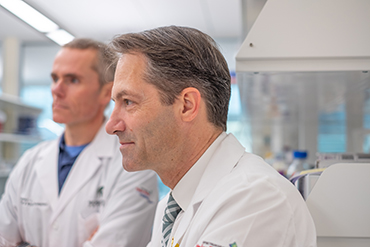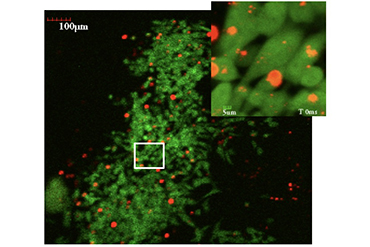
Michigan State investigates innovative treatments for pediatric cancers: BTN LiveBIG
Neuroblastoma is a rare form of tumor that develops in immature nerve cells, called neuroblasts, found near the kidneys. Thus, children are the most susceptible to developing them, with neuroblastoma representing 7 to 10 percent of pediatric cancers.
The treatments are much like any other cancer. Chemotherapy and/or radiation therapy can help shrink and kill neuroblastoma cells. But these treatments are harsh for adults; for children they can be their own kind of illness.

More African American and Hispanic children die from cancer than white children
African American and Hispanic children admitted to pediatric intensive care units for cancer treatment have significantly higher death rates than do Caucasian patients, a study led by two Michigan State University and Spectrum Health researchers found.
Nationwide, 8.5% of African American and 8.1% of Hispanic children with cancer died after admission to pediatric intensive care units, compared with 6.3% of non-Hispanic Caucasian children.

Researchers earn grant to study fungus that causes liver cancer
Felicia Wu, John A. Hannah Distinguished Professor in the Department of Food Science and Human Nutrition and Department of Agricultural, Food and Resource Economics, and David Hennessy, Elton R. Smith Chair in the Department of Agricultural, Food and Resource Economics, were recently awarded a $478,000 USDA-National Institute of Food and Agriculture, or NIFA, grant of for their project "Aflatoxin Reduced By Bt Corn? Examining Crop Insurance Claims for Real World Impacts of Technologies for Food Safety."

Researchers measure cancer cell mechanics in living animals using nanoparticles
A first-of-its-kind nanoparticle-based in vivo imaging technique that may one day be used to help diagnose and even treat cancer has been developed by researchers collaborating from Michigan State, Johns Hopkins and Stanford universities.
The technique captures mechanical properties in living subjects that probe fundamental relationships between physics and in vivo (in a living organism) biology. The results are published in the journal Materials Today.
